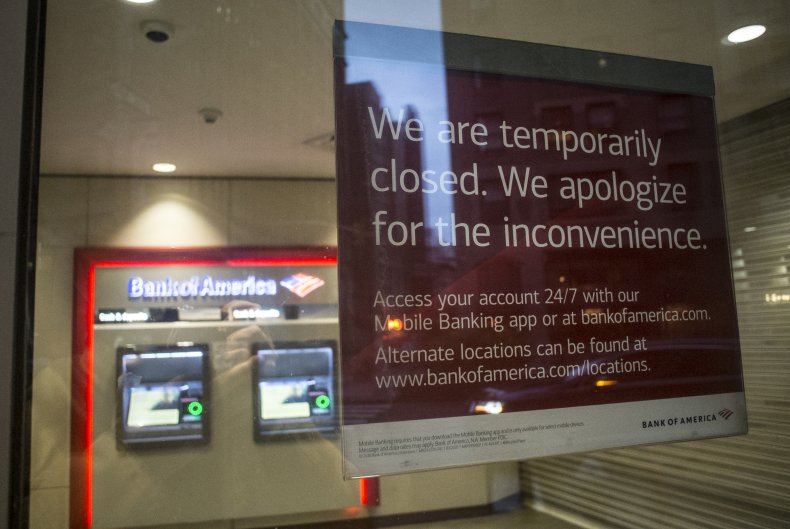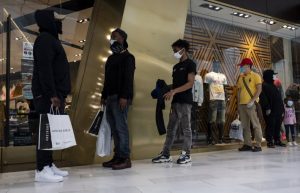Thanksgiving is a federal holiday observed across the U.S. on the fourth Thursday of every November. This year it falls on November 26.
Non-essential government offices and businesses are closed on federal holidays, so most banks, including The Federal Reserve, are not open over Thanksgiving.
But online banking options at the bank websites as well as ATM machines are available for use. Some customer service phone lines may also be open on Thanksgiving, according to GO Banking Rates, a financial services website.
Listed below are some banks that are closed on Thanksgiving. Contact your local bank to confirm the services available and exact hours of operation before visiting.
- American National Bank
- Ameris Bank
- Bank of America
- Bank of the West
- BBVA Bank
- BB&T
- BMO Harris
- Capital One
- Chase
- Citibank
- Citizens Bank
- Commerce Bank
- Eastern Bank
- Fifth Third Bank
- FirstBank
- First Citizens Bank
- Frost Bank
- Great Western Bank
- HSBC
- KeyBank
- M&T Bank
- PNC Bank
- Regions Bank
- Santander Bank
- Signature Bank
- Silicon Valley Bank
- SunTrust Bank
- Synovus Bank
- UBank
- U.S. Bank
- Union Bank
- United Bank
- Wells Fargo
- Zions Bank
Some banks may have closed a selection of its branches or amended its services due to the ongoing COVID-19 pandemic.
The Federal Deposit Insurance Corporation (FDIC) stated: “In difficult circumstances, some banks may need to temporarily limit operations to protect the health of their employees and customers. This may include closing a lobby, converting to drive-thru only services, or encouraging customers to use ATMs or digital channels to access their services.
“Many banks offer ways to open accounts remotely—online or through a mobile app—without going to a bank branch. As long as you have a computer or a smartphone with access to the internet, it is easy to get started.
Several banks have incorporated different forms of mobile technology as part of their services amid the ongoing outbreak, such as Remote Deposit Capture (RDC), “which allows customers to take a picture of a check with their mobile device and deposit that check electronically without ever visiting a branch or using an ATM,” the FDIC noted.
“Regardless of the bank’s operating conditions, your money is insured by the FDIC. Deposits with an FDIC-insured bank or savings institution will continue to be protected up to at least $250,000,” the FDIC said.
The FDIC also warned bank users that “some people may take advantage of COVID-19 by using fraudulent websites, phone calls, emails, and text messages. While claiming to offer ‘help,’ they may be trying to trick people into providing social security numbers, bank account numbers, and other valuable personal information.
“Do not divulge your bank or credit card numbers or any other personal information over the phone unless you initiated the conversation with the other party and you know that it is a reputable organization,” the FDIC added.
A sign indicating a Bank of America branch closure due to the COVID-19 pandemic, pictured on March 25 in New York City. Most banks are closed on Thanksgiving, including Bank of America. Bill Tompkins/Getty Images



















